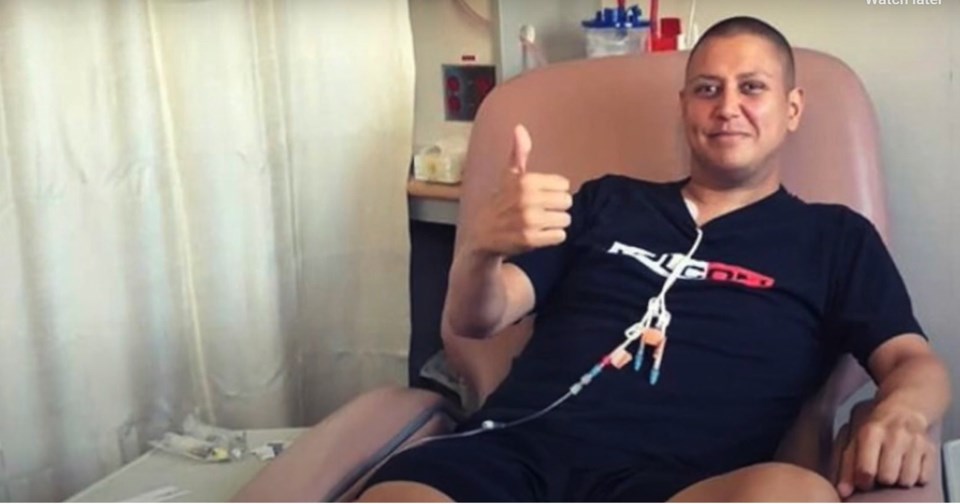A Kelowna man has beaten cancer, thanks to a stem cell donor from Germany.
Joel Koette, was diagnosed with acute myeloid leukemia in April of 2018, received a stem cell transplant in September of that year after six rounds of chemotherapy.
The procedure took about two hours and was followed by a six to eight month recovery afterwards.
“I wasn’t bad, I had a bit of the shakes in the bed, kind of curled up under the covers and they provided me with some medications to calm me down … the recovery was fairly difficult, but I am glad I went through it,” Koette said.
Koette is Métis and had a hard time finding a match. According to Canadian Blood Services, around 75 per cent of patients won’t find a match within their family and will look to an unrelated donor.
“There are, I think, less than six per cent of ethnic background donors on the Canadian registry so, it took a while to find a match and finding a match is really important to prevent lots of side effects and a successful outcome,” says Koette.
The statistic that Koette had referred to reflects the proportion of ethnic males ages 17-35 listed on the Canadian Blood Services Stem Cell Registry — which is the most needed donor demographic at this time.
“Matching stem cells is a bit more complex than let's say blood donation there are lots of markers that you need to make sure — kind of like a puzzle piece or a specific barcode that you have that you have to match to someone else,” explains Gabriele Jagelaviciute, a donor recruiter at Stem Cell Club and first-year medical student at Queen’s University.
Koette’s donor comes from Westerburg, a small township of 6,000 people in Germany where thanks to the donor society, they’ve been able to connect.
“When I first got his letter I cried, it was very emotional for me. He saved my life, without his donation I probably wouldn’t be here talking to you right now.”
“He doesn’t speak much English … I don’t speak German so we kind of use Google translates. It’s a lot of fun, we talk probably once-a-week and we want to meet up sometime after COVID.”
After his recovery, Koette successfully completed his nursing degree at the University of British Columbia Okanagan Campus and worked his first day as a registered nurse on the surgical ward at Kelowna General Hospital on Jan. 20.
Jagelaviciute says they’re recruiting males aged 17-35 and from ethnic backgrounds to increase representation in the donor pool.
“Male donors are associated with better outcomes for the patient post-transplant and the diverse donor will increase the chances that someone from a diverse background can find a match,” she says.
There are two ways to donate stem cells — the first is similar to donating blood and dialysis, the other is a less common method is the bone marrow transplant.
Visit the Canadian Blood Services website to see if your stem cells are a match for someone in need.



